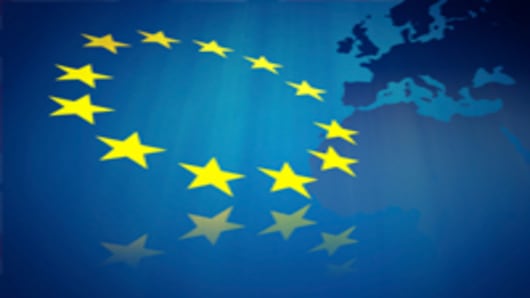The debt crisis, the prospect of a Greek default and warnings of imminent financial Armageddon, whether justified or not, have all weighed down European equities this year.
At the end of last week, the FTSE 100 was down around 9 percent, or 531 points, on the year, while German's DAX 30 index and France's CAC 40 have both fallen by close to 20 percent so far.
Despite little prospect of any immediate positive news, investors are being urged to look closer at European equities.
A switch from defensive stocks, such as healthcare, food and drinks, to cyclical stocks such as industrial and resource companies, is on the horizon, according to a research note from analysts at Deutsche Bank.
"Cyclicals are now priced for recession. Current multiples are implying earnings declines similar to 2001/3 and not far off 2008/9," they said. "We should therefore be alert to the possibility of a switch from defensives, which look overextended, into cyclicals."
The analysts cut their targets for Europe's main stock indexes and said that they believe European equities are currently pricing in a "mild global recession." However, they think that there will in fact be a "global recovery," and that policy-makers in the euro area will make sure that the crisis there does not derail recovery.
Stocks were called lower Monday after European finance ministers did not make any conclusive headline-grabbing announcements from the weekend's important meeting, and Greek Prime Minister George Papandreou postponed a planned trip to the US, heightening worries about the situation in the troubled Mediterranean state.
There are increasing fears that the single currency may be forced to break up unless greater fiscal integration is brought in.
"If you look past the highly bearish macro news, there are great opportunities for investment," Chris Tinker, equity strategist at Libra Investment Services, told CNBC Monday.
He believes that there is an average 93 percent correlation between sectors and the market, meaning that share prices of sectors are following the market very closely and this could peak soon, leading to opportunities for investment in sectors which shouldn't be so closely linked to the market.
"We are seeing a situation where, as that correlation unwinds, opportunities will really come to the fore," he said. "Equities are very highly correlated because they have been used as a hedge by the bond markets."



